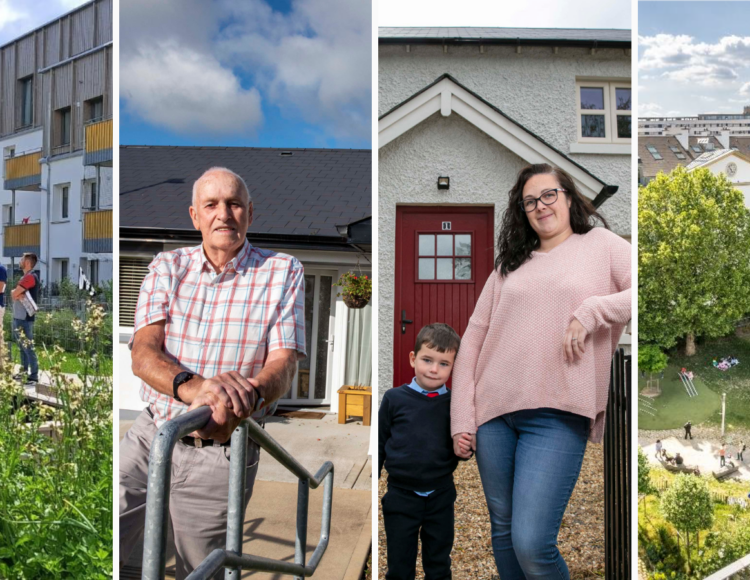The appointment of Dan Jørgensen as Commissioner-designate for Energy and Housing marks a crucial opportunity to tackle the European housing crisis and ensure that the drive for affordable, sustainable homes and investing in people become central to the future of Europe.
His home country, Denmark offers one of the good examples of an effective housing model, where one out of five homes is social housing, a revolving fund ensures continuous investment in the building stock and people, tenants making decisions about their homes, and social welfare is closely linked to job market integration. This means generating social value instead of turning homes into profitable assets.
As President Ursula von der Leyen stated in her mission letter to the designated Commissioner: “Millions of young people and families struggle to find affordable housing throughout Europe. We urgently need to address this, supporting Member States to address structural drivers and unlocking public and private investment for affordable and sustainable housing.” This call comes at a crucial time when across Europe, including in Denmark, delivery rates are down due to the on-going high construction and land prices. A construction slowdown that is exacerbating the high rent and house prices and the social knock-on effects.
Bent Madsen, President of Housing Europe and CEO of the Danish National Association of Non-profit Housing Companies (B.L) stressed: “The Aalborg East’s success in Denmark is a blueprint for holistic future housing regeneration projects that must be a cornerstone of the European Affordable Housing Plan. Over the last decade, this once-stigmatised district has undergone a complete transformation, thanks to the social housing provider and the city, improving energy efficiency while maintaining affordability, increasing the diversity of housing types, reducing energy use and crime by 50% and allowing residents to advance in education. It now attracts 10,000 visitors annually for health and training courses, demonstrating how holistic, resident-led regeneration can bring lasting benefits.”
The Socio-Economic Impact of Housing
Social, cooperative, and public housing providers across the continent are committed to investing in renovation and new construction efforts, with a goal to renovate 4 million homes by 2030. These planned rates are currently being missed to varying degrees across the EU having been hard hit by COVID-19, the impact of the invasion in Ukraine and the on-going insecure outlooks in finance and construction.
While the reach of the housing crisis is clear, figures also underline the need to avoid further delayed investment in public, cooperative, and social housing. The sector has the potential to not only provide homes without driving speculation, but also help create economic stability, reduce inequality, and improve quality of life.
In Estonia, tax revenue from renovation construction projects has been quantified to be 32– 33% of the total renovation project costs, making state-subsidised renovation has been budget neutral in the last 10 years. In Austria, limited-profit housing helps households save €1.3 billion annually through lower housing costs, and in Belgium, access to social housing decreases the risk of poverty for households by 40%. Across the EU, eliminating housing inadequacy would pay for itself within 18 months through projected savings, including lower healthcare costs and improved social outcomes.
At the same time, one in five full-time workers aged 25-34 still lived at home with their parents, struggling to find suitable housing options on the private market. In some countries, over 40% of the population lives in overcrowded homes. We must do all that we can to ensure that the regulatory and financial blocks do not prevail people-oriented solutions.
Building on the Affordable Housing Initiative: A Path Forward
Housing Europe commends the European Affordable Housing Initiative (AHI) and strongly believes that it must continue as a central pillar of the upcoming European Affordable Housing Plan. The initiative, which aims to pilot the inclusive renovation of 100 ‘Lighthouse Districts’ across Europe has brought forward excellent examples in approaches which apply, social and technical innovation, and sustainable finance that need to be brought to the forefront, to inspire and scale up an inclusive energy transition across Europe. Housing Europe calls on the Commissioner to ensure these best practices which tackle simultaneously the climate and housing crisis in a systemic approach are fully recognised and supported.
The Right Funding with the Right Conditionality
As we move forward, it is critical that EU funding for social and affordable housing projects is increased but also comes with conditionality criteria to ensure that new or renovated housing genuinely addresses the crisis and remains affordable in the long term. Building more homes must solve affordability, not just expand housing supply for the few. We urge the European Commissioner to ensure that funding and regulation are closely aligned, focusing on the specific needs of each Member State. This approach should enhance the impact of investments on housing affordability, social cohesion, and sustainability. Additionally, it should address the root causes of housing exclusion and promote community-driven solutions.
Now is the time for Europe to incentivise and support government, cities, and local authorities to take bold action. With the new Commissioner for Energy and Housing in place, we must seize this opportunity to embrace a New Housing Paradigm. Europe’s housing crisis can no longer be sidelined, and we are counting on the new Commissioner to bring forward the solutions that millions across the continent desperately need.
Housing Europe’s Manifesto offers three steps to lead the way out of the housing crisis.
Contact Information:
Housing Europe – The European Federation of Public, Cooperative and Social Housing
www.housingeurope.eu
18 Square de Meeûs, 1050 Brussels, Belgium
Press contact: diana.yordanova@housingeurope.eu
Housing Europe is the European Federation of Public, Cooperative and Social Housing. Since 1988 it is a network of 45 national and regional federations, as well as 16 partnering organisations in 31 countries in Europe. Together they manage around 25 million homes, about 11% of existing dwellings in Europe.
